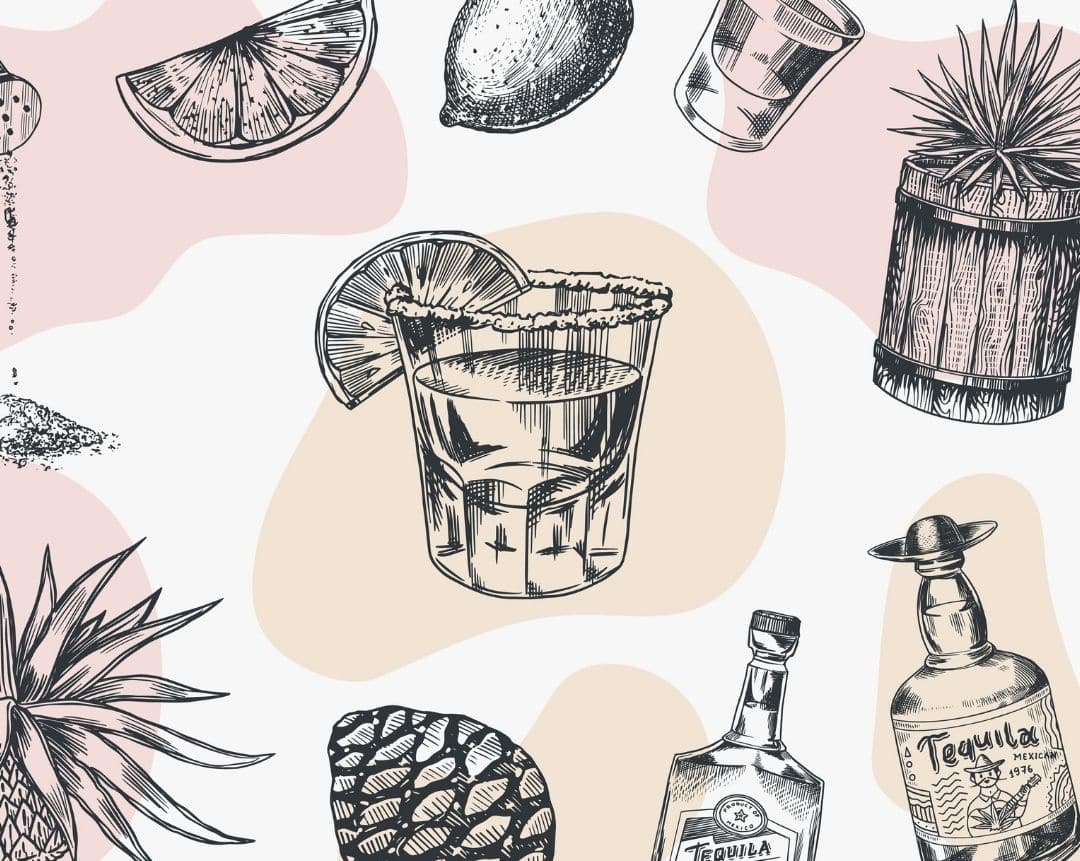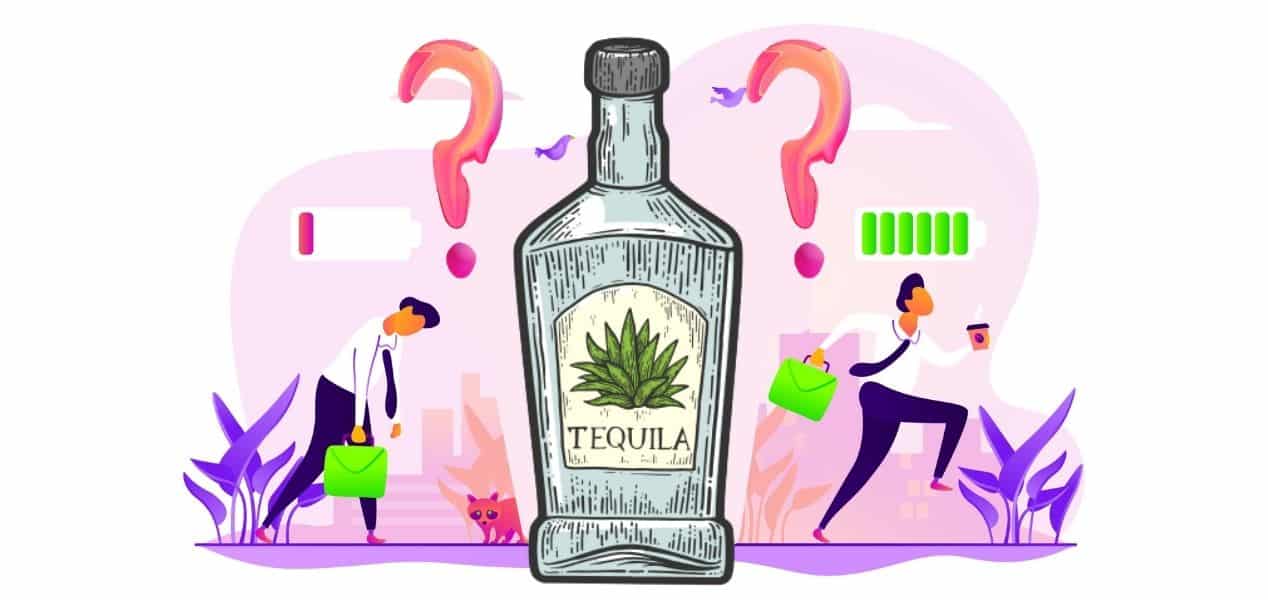Tequila As A Stimulant: Unlocking The Secrets Of This Iconic Spirit
Tequila, a stimulant in its own right, has captured the hearts of spirit enthusiasts worldwide. Known for its rich history and distinct flavor profile, tequila continues to evolve as a popular choice for those seeking an invigorating drinking experience. Whether consumed neat, in cocktails, or as part of cultural celebrations, tequila offers much more than just its bold taste—it provides a stimulating journey into Mexican heritage and craftsmanship.
Beyond its reputation as a party starter, tequila's stimulating effects stem from its unique production process and the natural properties of the blue agave plant. As one of the most iconic spirits globally, tequila's rise in popularity can be attributed to its versatility and ability to energize both mind and body when enjoyed responsibly.
This article delves deep into the world of tequila, exploring its stimulating qualities, health implications, cultural significance, and expert insights. Whether you're a tequila aficionado or a curious newcomer, this comprehensive guide will provide valuable information to enhance your understanding and appreciation of this remarkable spirit.
Read also:Justin Bieber About Selena Gomez The Untold Story
Table of Contents
- The Rich History of Tequila
- Tequila Production Process
- How Tequila Acts as a Stimulant
- Health Implications of Tequila Consumption
- Different Types of Tequila
- Tequila in Popular Cocktails
- Cultural Significance of Tequila
- The Science Behind Tequila's Effects
- Tips for Responsible Consumption
- The Future of Tequila as a Stimulant
The Rich History of Tequila
Tequila's journey begins in the heart of Mexico, specifically in the region of Jalisco, where the blue agave plant thrives. The origins of tequila date back to the 16th century when Spanish conquistadors introduced distillation techniques to the native pulque, a fermented beverage made from agave. Over time, this fusion of indigenous ingredients and European methods evolved into what we now know as tequila.
By the 18th century, tequila production became more organized, with the first official tequila factory established in 1795. The spirit's popularity grew steadily, eventually reaching international markets. Today, tequila is protected by denomination of origin status, ensuring its authenticity and quality.
Key Historical Milestones
- 1530s: Introduction of distillation techniques in Mexico.
- 1795: Establishment of the first tequila factory.
- 1974: Tequila receives denomination of origin status.
Tequila Production Process
The production of tequila is a meticulous process that highlights the craftsmanship and dedication required to create this stimulating spirit. It begins with the cultivation of blue agave plants, which take between 7 to 10 years to mature. Once harvested, the piñas (heart of the agave) are roasted to extract their natural sugars.
These sugars are then fermented and distilled twice to achieve the desired alcohol content. Aging occurs in oak barrels, where tequila develops its distinct flavors and colors. Each step in this process contributes to tequila's stimulating properties, making it a spirit unlike any other.
Stages of Tequila Production
- Harvesting: Selection of mature blue agave plants.
- Roasting: Cooking the piñas to release natural sugars.
- Fermentation: Conversion of sugars into alcohol.
- Distillation: Purification and concentration of alcohol.
- Aging: Development of flavor profiles in oak barrels.
How Tequila Acts as a Stimulant
Tequila's stimulating effects can be attributed to its alcohol content and the natural compounds found in the blue agave plant. When consumed in moderation, tequila can enhance mood, increase sociability, and provide a sense of relaxation. These effects are particularly noticeable in social settings where tequila is often shared among friends.
Studies have shown that alcohol, including tequila, stimulates the release of endorphins in the brain, promoting feelings of happiness and well-being. However, it's important to consume tequila responsibly to avoid negative consequences associated with excessive drinking.
Read also:La Palma Volcano 2024 The Latest Developments And Impacts
Factors Influencing Tequila's Stimulating Effects
- Alcohol content: Typically ranges from 38% to 40% ABV.
- Agave sugars: Provide natural energy and sweetness.
- Distillation process: Concentrates stimulating compounds.
Health Implications of Tequila Consumption
While tequila is often celebrated for its stimulating qualities, it also offers certain health benefits when consumed in moderation. Research suggests that the blue agave plant contains fructans, which may promote gut health and aid in digestion. Additionally, tequila's low sugar content compared to other spirits makes it a favorable choice for those mindful of their calorie intake.
However, excessive consumption can lead to adverse effects such as dehydration, impaired judgment, and long-term health issues. It's crucial to balance the stimulating effects of tequila with responsible drinking habits to maximize its potential benefits.
Health Benefits of Tequila
- Promotes gut health through fructans.
- Supports digestion with natural enzymes.
- Lower sugar content compared to other spirits.
Different Types of Tequila
Tequila comes in various forms, each offering unique flavor profiles and stimulating experiences. The main types of tequila include Blanco (Silver), Reposado, Añejo, and Extra Añejo. Each category is distinguished by its aging process, which affects its color, aroma, and taste.
Blanco tequila is unaged and showcases the purest form of agave flavor. Reposado tequila is aged for a minimum of two months, developing a smoother profile. Añejo tequila, aged for at least one year, offers rich, complex flavors, while Extra Añejo tequila, aged for three years or more, provides an even deeper experience.
Characteristics of Tequila Types
- Blanco: Crisp and vibrant with bold agave notes.
- Reposado: Balanced with hints of oak and vanilla.
- Añejo: Smooth and sophisticated with deep flavors.
- Extra Añejo: Luxurious with intense complexity.
Tequila in Popular Cocktails
Tequila's stimulating qualities shine brightly in a variety of popular cocktails. From the classic Margarita to the refreshing Paloma, tequila's versatility makes it a staple in cocktail culture. Bartenders around the world continue to innovate, creating new recipes that highlight tequila's unique flavor profile.
When crafting tequila-based cocktails, it's essential to consider the type of tequila used, as each variety contributes different elements to the final drink. For example, Blanco tequila is ideal for Margaritas, while Añejo tequila enhances the complexity of cocktails like the Old Fashioned.
Popular Tequila Cocktails
- Margarita: A timeless favorite with tequila, lime juice, and triple sec.
- Paloma: A refreshing mix of tequila, grapefruit soda, and lime.
- Tequila Sunrise: A vibrant cocktail with tequila, orange juice, and grenadine.
Cultural Significance of Tequila
Tequila holds a special place in Mexican culture, symbolizing tradition, celebration, and community. It plays a central role in festivals, ceremonies, and everyday gatherings, serving as a unifying element among people. The spirit's connection to Mexican heritage is evident in its production methods, which have been passed down through generations.
Internationally, tequila has become a symbol of Mexican identity, with its global popularity reflecting the country's rich cultural heritage. As more people discover the stimulating qualities of tequila, its cultural significance continues to grow, bridging gaps between diverse communities.
Cultural Celebrations Featuring Tequila
- Day of the Dead: Honoring ancestors with tequila offerings.
- Cinco de Mayo: Celebrating Mexican heritage with tequila-based drinks.
- Weddings and Festivals: Incorporating tequila into traditional rituals.
The Science Behind Tequila's Effects
The stimulating effects of tequila can be explained through scientific principles related to alcohol metabolism and neurochemistry. When consumed, tequila enters the bloodstream and affects the central nervous system, leading to increased dopamine release and heightened sensory experiences.
Research conducted by institutions such as the National Institute on Alcohol Abuse and Alcoholism highlights the mechanisms by which alcohol influences brain activity. These studies emphasize the importance of responsible consumption to minimize negative outcomes while enjoying tequila's stimulating benefits.
Scientific Insights on Tequila
- Alcohol metabolism: How the body processes tequila.
- Neurochemical effects: Impact on brain activity and mood.
- Health considerations: Balancing benefits and risks.
Tips for Responsible Consumption
To fully enjoy tequila's stimulating qualities while maintaining your well-being, it's essential to practice responsible drinking habits. Start by choosing high-quality tequila that meets denomination of origin standards. Sip slowly and savor the flavors, allowing your body to process the alcohol gradually.
Stay hydrated by drinking water alongside tequila to prevent dehydration. Additionally, set limits on your consumption and avoid mixing tequila with other spirits to reduce the risk of overindulgence. By adopting these practices, you can enhance your tequila experience while prioritizing your health.
Responsible Drinking Tips
- Choose high-quality, authentic tequila.
- Sip slowly and savor the flavors.
- Stay hydrated with water between drinks.
- Set limits on your consumption.
The Future of Tequila as a Stimulant
As tequila continues to gain global recognition, its role as a stimulating spirit is likely to expand. Innovations in production techniques and sustainable practices will enhance its appeal, attracting new audiences while preserving its cultural roots. The rise of craft tequilas and premium brands reflects the industry's commitment to quality and authenticity.
Looking ahead, tequila's stimulating properties will continue to inspire creativity in cocktail culture and culinary applications. Its ability to energize and unite people will remain a key factor in its enduring popularity. By embracing responsible consumption and respecting its cultural significance, tequila enthusiasts can look forward to a vibrant future for this iconic spirit.
Emerging Trends in Tequila
- Craft tequila production: Focus on small-batch, artisanal methods.
- Sustainability initiatives: Eco-friendly practices in tequila farming.
- Innovative cocktails: New recipes showcasing tequila's versatility.
Conclusion
In conclusion, tequila as a stimulant offers a unique combination of cultural heritage, stimulating effects, and health benefits when consumed responsibly. Its journey from ancient Mexican traditions to global recognition highlights its enduring appeal and versatility. By understanding the production process, health implications, and cultural significance of tequila, enthusiasts can enhance their appreciation for this remarkable spirit.
We invite you to share your thoughts and experiences with tequila in the comments below. Feel free to explore our other articles on spirits and cocktails to expand your knowledge and enjoyment. Cheers to the stimulating world of tequila and the connections it fosters among people worldwide!


